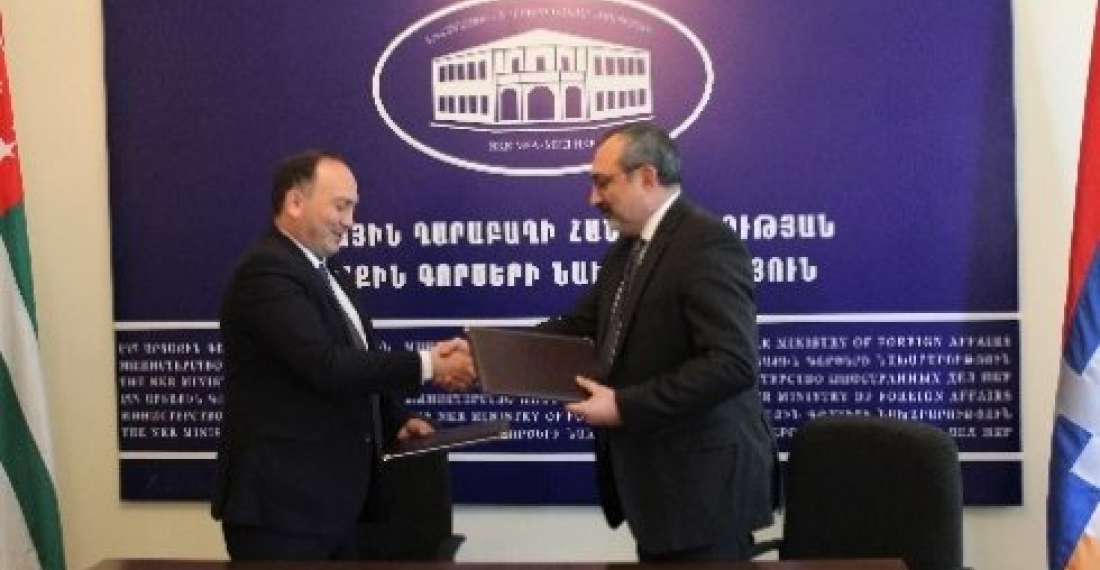Two unrecognised entities in the South Caucasus are taking steps to strengthen co-operation between them, in a move that is likely to cause upset in the rest of the region.
The Foreign Minister of the self-declared Republic of Abkhazia, Daur Kove, on Monday (28 August) was in Stepanakert where he had meetings with the leadership of the self-declared Nagorno-Karabakh Republic (NKR).
Welcoming the guest from Abkhazia, NKR Foreign Minister Karen Mirzoyan said the visit was "a manifestation of close practical and professional ties formed between the two ministries, will also give a new impetus to the friendly relations between NKR and Abkhazia", according to the website of the self-declared republic The website said that "during the meeting, the sides discussed steps to be taken toward the development of cooperation between the foreign ministries of the two states, and exchanged views on various points of the bilateral agenda, and regional and international matters".
After the meeting NKR and Abkhazia signed a memorandum of understanding in which they agreed "to hold consultations on collaboration in the domains of information and public expertise, development of cooperation on interstate, intergovernmental and interagency level as well as in youth policy and diplomacy and some other urgent matters. The memorandum also envisions the implementation of programs on exchange of know how and training for diplomats."
Commonspace.eu political editor said in a comment:
"Co-operation between the unrecognised entities in the former soviet space has been ongoing since they seceded from their metropolitan states decades ago. However the self-declared Nagorno-Karanakh Republic, which is internationally recognised as part of Azerbaijan, has always been somewhat aloof from the process, largely due to sensibilities in Armenian-Georgian relations. We have seen much stronger co-operation between say Abkhazia and South Ossetia, or Abkhazia and Transdniestr. Daur Kove's high profile visit to Karabakh is likely to considerably upset Georgia, since Abkhazia is internationally recognised as part of Georgia by most of the international community.
The visit itself may be a reaction to stricter co--ordination in the international arena between Georgia and Azerbaijan on issues related to their separatist regions. Both countries are likely to condemn the visit in strong terms. The visit may also create some complications in Georgian-Armenian relations, since Kove would have had to travel through Armenian territory to enter Nagorno-Karabakh. In the end however the visit has only minor symbolic significance. Neither Abkhazia nor NKR are in a position to offer much assistance to each other."
source: commonspace.eu with agencies
photo: The foreign ministers of the self-declared republics of Abkhazia and Nagorno-Karabakh at their meeting in Stepanakert on Monday, 28 August 2017 (picture courtesy of press service of the self-declared Nagorno-Karabakh Republic)







